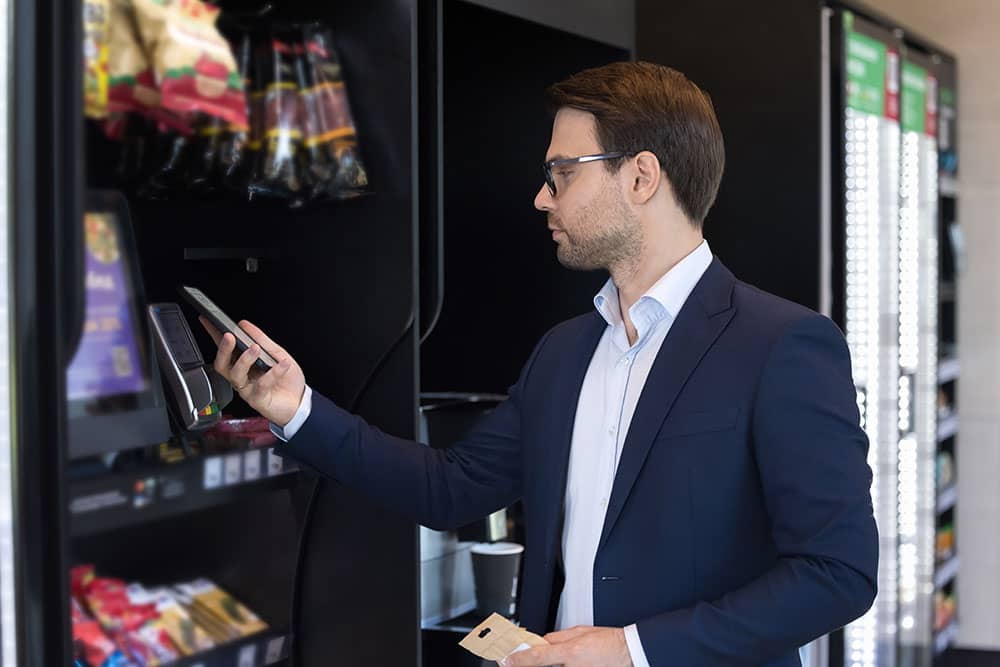
Image © Adobe Images
Cash payments are expected to account for just 10% of all consumer spending in Canada by 2030.
This is according to projections from financial analysts, as the country edges closer to becoming a cashless society.
The shift reflects a global trend driven by advances in payment technology, changing consumer habits, and increasing reliance on online commerce.
In 2022, cash made up approximately 22% of all purchases. Since then, usage has continued to decline year-on-year, accelerated by the pandemic and a growing preference for contactless and mobile payments.
Analysts note that this transformation is not unique to Canada, with similar moves towards cashless systems taking place in countries such as Sweden, Norway, and China.
The diminishing role of physical currency has raised questions about access, infrastructure, and the future of traditional banking, but industry figures suggest digital payment ecosystems are becoming the new norm for both consumers and businesses.
Interac’s Central Role in Canada’s Payment Landscape
A major driving force behind Canada’s move away from cash is Interac, the country’s leading debit network and e-transfer provider. Originally designed as a national debit card platform, Interac has evolved into a real-time payments engine used by millions of Canadians to send money, pay bills, shop online and conduct business.
Unlike many countries that have adopted third-party fintech apps for peer-to-peer payments, Canada has largely relied on Interac’s direct integration with banking institutions.
This has allowed for faster uptake, improved security, and broader consumer confidence in using digital methods over cash.
Interac’s prominence has helped streamline payments across sectors, reducing friction in day-to-day transactions and enabling real-time money movement without the need for cheques, cash, or manual processing.
Online Gambling Sector Benefits from Interac Integration
Among the industries capitalising on the growth of Interac are online casinos and betting platforms, particularly following recent regulatory changes that have opened the Canadian market to licensed operators.
Online gambling firms have rapidly adopted Interac as a core payment option, largely due to its instant processing, widespread accessibility, and trusted reputation among users.
For players, Interac casinos provide the ability to deposit and withdraw funds directly from their bank accounts in seconds has improved user experience and increased engagement across platforms.
These advantages have helped the sector expand significantly in recent years, with some reports indicating that a majority of player transactions on Canadian gambling sites are now processed via Interac.
In a market where speed, convenience, and trust are key factors in user retention, the integration of Interac has provided operators with a critical edge.
Moreover, by enabling secure, bank-level transactions without the need for credit cards or third-party wallets, Interac has helped reduce chargebacks and fraud risks—key concerns for gambling businesses operating online.
A Broader Shift in Consumer Behaviour
Canada’s payment landscape is evolving in tandem with changing consumer expectations.
Contactless cards, mobile wallets, and digital transfers are now commonplace, while the use of physical banknotes has become increasingly limited to specific demographics and rural areas.
Although concerns remain over financial exclusion for the elderly, low-income groups, or those without reliable internet access, the overall trend points towards an increasingly digitised economy.
Public policy experts have warned that while the cashless shift brings efficiency, it must also include safeguards to ensure vulnerable populations are not left behind.
Although concerns remain over financial exclusion for the elderly, low-income groups, or those without reliable internet access, the overall trend points towards an increasingly digitised economy. Public policy experts have warned that while the cashless shift brings efficiency, it must also include safeguards to ensure vulnerable populations are not left behind.
Although concerns remain over financial exclusion for the elderly, low-income groups, or those without reliable internet access, the overall trend points towards an increasingly digitised economy. Public policy experts have warned that while the cashless shift brings efficiency, it must also include safeguards to ensure vulnerable populations are not left behind.
